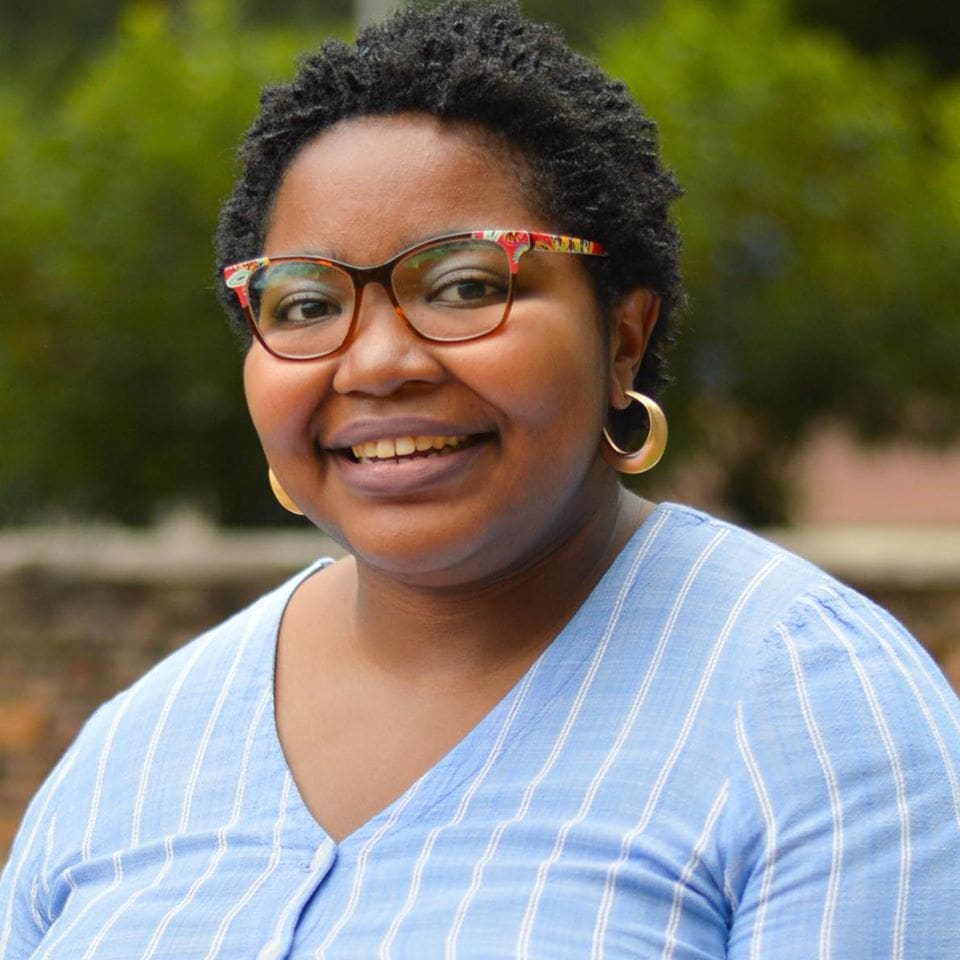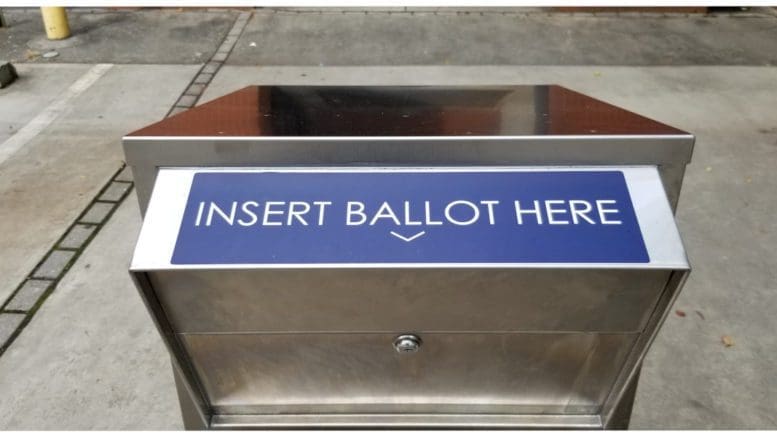By Arielle Robinson
The Southern Poverty Law Center along with local civil rights and activist groups hosted a media briefing Thursday afternoon over concerns about gerrymandered redistricting maps making their way through the Georgia General Assembly.
“This is an unprecedented local redistricting session and legislative session that we’ve never seen before,” SPLC Staff Attorney Poy Winichakul said. “This is the first redistricting cycle where Georgia has not been covered under the Voting Rights Act, Act Section Five, the preclearance requirement.”
Winichakul said that in 2013, the U.S. Supreme Court in Shelby County v. Holder nullified the protections under Section Five of the VRA.
The protections would have required the Department of Justice to preclear, or take a second look at, all kinds of maps that are being passed in Georgia, including the maps currently being passed through at the county level.
“What we’re seeing right now is district drawing that has not been transparent,” Winichakul said. “That has not had public input, a public hearing, or contributions from the public and instead is being usurped by the state legislature to draw district lines without even much input from local elected officials. This is a specific process that has not been used before.”
The Georgia House and Senate passed two GOP-backed bills that would redraw the district maps for the Cobb County Board of Commissioners and the Board of Education last week. The bills now go to Governor Brian Kemp.
The bills put the majority of East Cobb into Republican Commissioner JoAnn Birrell’s district. This means Democratic Commissioner Jerica Richardson will be drawn out of her district and into Birrell’s.
A new commission district will be along I-75 from the Cumberland area to Kennesaw.
Additionally, BOE Democratic members Charisse Davis and Dr. Jaha Howard will be drawn into the same district and a new empty seat created.
GOP members of the Cobb Legislative delegation used a unique process this time in passing maps that would favor their party in the redistricting process that occurs every 10 years.
Rather than go through the House Intragovernmental Coordination Committee, which has been the norm in the past, GOP members bypassed the committee and went through the Governmental Affairs Committee to get their maps passed.
The Cobb Legislative Delegation, under the leadership of its chair, typically develops the maps that are supposed to go to the Intragovernmental committee.
Republican members of the Cobb delegation such as State Reps. John Carson and Ginny Ehrhart went against Cobb Legislative Chair Rep. Erick Allen’s maps, which would have kept boundaries similar to how they were before the GOP redrew them.
Now, maps that SPLC members, civil rights groups, and activists call gerrymandered and racist have been approved by the state legislature’s two chambers.
“Attacks on our right to vote hasn’t stopped just with our ballot boxes,” Executive Director of Common Cause Georgia Aunna Dennis said. “It’s really playing out in our local redistricting process and it’s rearing its ugly head. Gerrymandering — or drawing voting maps that make it harder for communities of color to elect candidates of their choice — is part of a long game attempt by people who want to keep our communities, our voices from being heard.”
Dennis said that Georgia needs federal and state protections that will have the interests of voters in mind rather than special interests.
A Cobb parent, Post 6 resident and member of the grassroots organization Watching the Funds Cobb, Laura Judge, spoke about how the redistricted school board maps will act to further stifle the voices of marginalized communities in the county.
“The state legislature has put forward a map for the Cobb County School Board that defends the current [Republican] majority at the expense of fair representation for Black voters,” Judge said. “Just like the school board, the state legislature is rushing their maps through while refusing to listen to community input.”
Judge said that with the current school board in place, Cobb children are “forced to live in a toxic environment” where their parents are not given a voice to advocate for their kids’ needs and interests.
“It feels like issues of diversity, equity, and inclusion are not being addressed at all,” Judge said. “To not have our voices heard while we continue to pay taxes to the school board and see our money misspent is especially troubling.”
Judge, who lives in Davis and Richardson’s district, said the maps will make the voices of those who live in the area irrelevant.
“The only way to ensure that our school board and our Board of Commissioners actually do what’s best for our students and our community is if we have fair districts that actually represent the voters and give us a say in our schools and our communities,” Judge said. “I strongly urge all Georgians to stand up to this attempt to diminish our voice by staying involved and staying active. Stand up to politicians passing maps that disenfranchise your communities.”
Maariya Sheikh, a Muslim Cobb student who is in the Georgia Youth Justice coalition, said the county’s public school system has rapidly diversified in the decade she has been in it.
She said her future will be impacted by the maps and she and other youth have been organizing for months so maps that harm communities of color will not be law.
“By letting a minority of legislators target Black and Brown voters to take over the local election process and draw biased maps, these politicians are dismantling … democracy,” Sheikh said.
Sheikh said it would be great to have a school board representative of the various racial and ethnic groups that comprise Cobb. Perhaps then, marginalized people’s voices will be heard when it comes to redistricting and wider issues of racism within the district.
“School board members know that they don’t have to listen when marginalized community members ask their leaders to stand alongside them,” Sheikh said. “Thus, [school board] members continue to push policies that censor students’ free speech and enable hate against Jewish students and students of color.”
Sheikh said there have been “countless” attacks by the school board and state legislature against people of color this year and the maps are the latest attack.
“Students are spit on and shouted at in school board meetings, Black elected officials are targeted by white supremacist groups, and policies that ban the teaching of Black history are being pushed forth by the same politicians who just hijacked their local maps,” Sheikh said. “Let’s be clear — for the sake of my friends, my little brother and sister, my friends, and all of us — Georgians of color deserve the right to vote, to be represented, and to learn.”
Dennis said regular citizens can get involved in the fight back against the maps by gathering with community members and local advocates to talk about the issue. She also said one can go to the media and reach out to their elected officials as well.
Susannah Scott from the League of Women Voters Georgia said citizens can call on some of the state’s big business leaders because the legislature listens to them.
“We support them and keep them profitable,” Scott said. “They can support us and make sure that we have a voice in our government that is adequate and representative of the demographics of the state.”
Winichakul stopped short of saying the SPLC would take legal action in light of Kemp passing the bills.
The attorney said the SPLC will continue to advocate against the maps and stay in touch with the media and public to let them know what that advocacy will look like.

Arielle Robinson is a student at Kennesaw State University. She also freelances for the Atlanta-Journal Constitution and is the former president of KSU’s chapter of the Society of Professional Journalists as well as a former CNN intern. She enjoys music, reading, and live shows.

